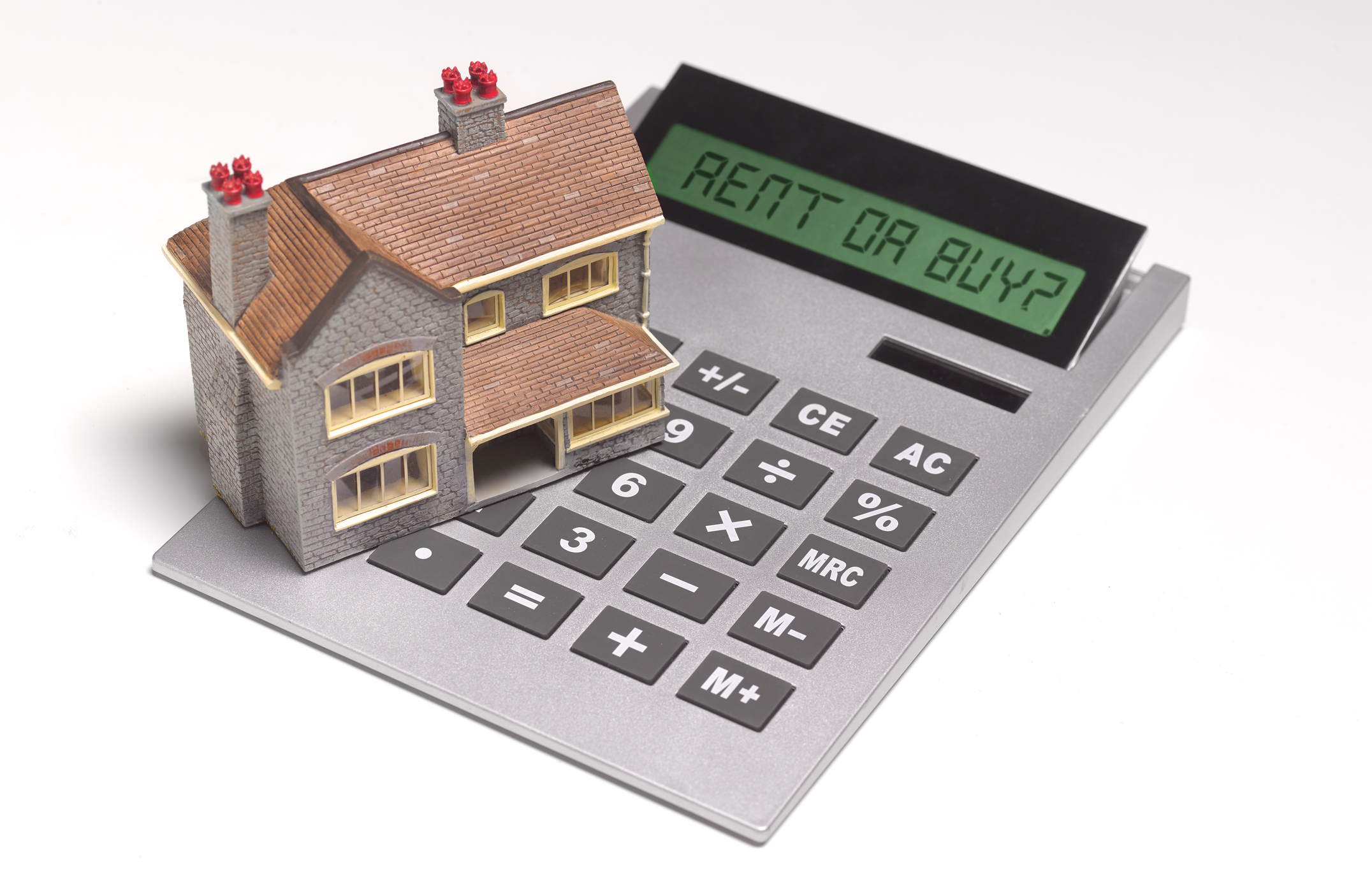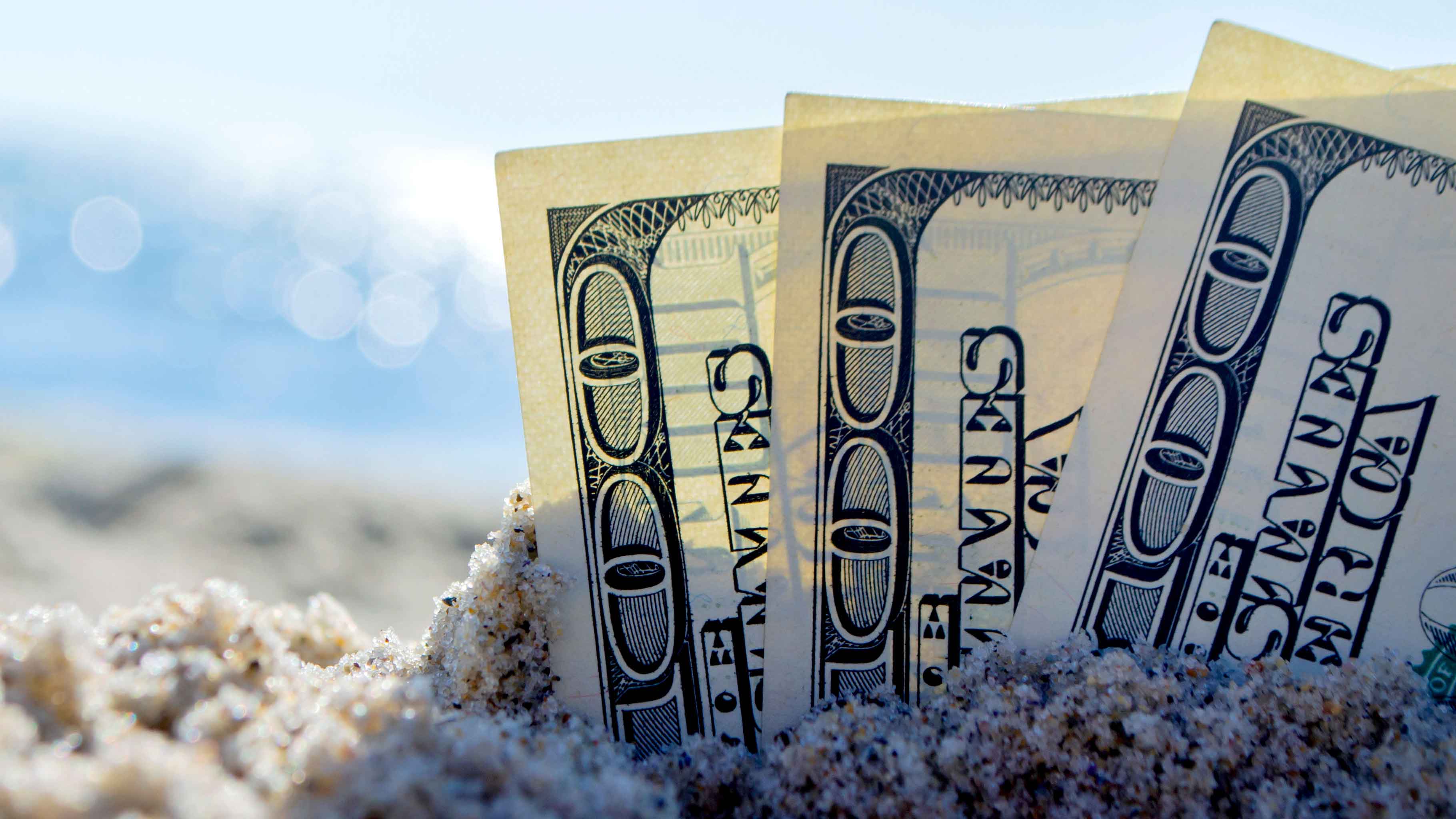Rent vs. Buy: Sometimes Renting is Better
Personal finance experts have long held that homeownership is a key step to building lasting wealth. How does that hold up in a pricey real estate market?


Profit and prosper with the best of Kiplinger's advice on investing, taxes, retirement, personal finance and much more. Delivered daily. Enter your email in the box and click Sign Me Up.
You are now subscribed
Your newsletter sign-up was successful
Want to add more newsletters?

Delivered daily
Kiplinger Today
Profit and prosper with the best of Kiplinger's advice on investing, taxes, retirement, personal finance and much more delivered daily. Smart money moves start here.

Sent five days a week
Kiplinger A Step Ahead
Get practical help to make better financial decisions in your everyday life, from spending to savings on top deals.

Delivered daily
Kiplinger Closing Bell
Get today's biggest financial and investing headlines delivered to your inbox every day the U.S. stock market is open.

Sent twice a week
Kiplinger Adviser Intel
Financial pros across the country share best practices and fresh tactics to preserve and grow your wealth.

Delivered weekly
Kiplinger Tax Tips
Trim your federal and state tax bills with practical tax-planning and tax-cutting strategies.

Sent twice a week
Kiplinger Retirement Tips
Your twice-a-week guide to planning and enjoying a financially secure and richly rewarding retirement

Sent bimonthly.
Kiplinger Adviser Angle
Insights for advisers, wealth managers and other financial professionals.

Sent twice a week
Kiplinger Investing Weekly
Your twice-a-week roundup of promising stocks, funds, companies and industries you should consider, ones you should avoid, and why.

Sent weekly for six weeks
Kiplinger Invest for Retirement
Your step-by-step six-part series on how to invest for retirement, from devising a successful strategy to exactly which investments to choose.
My life as a renter is well known to my colleagues and friends. And while my previous attempts at rent negotiations didn’t succeed, I eventually ended up moving into a different (and bigger) unit in the same complex at a cheaper rate. However, as I watch my friends go through the home-buying process, it makes me question whether I’m throwing away my money and the wealth-building potential of owning a home.
Personal finance experts have long held that homeownership is a key step to building lasting wealth. A home is an asset that generally appreciates in value over time, and buyers also benefit from leverage: You can borrow up to 80% of the value of a home, or even more with a low down payment loan.
Before individuals had access to low-cost mutual funds and brokerage accounts, the stock and bond markets were limited to institutional and deep-pocketed investors. For everyone else, buying a home was the primary way to invest, says professor Ken Johnson, of Florida Atlantic University, who specializes in rental housing and real estate market research. Johnson is also the co-creator of the Beracha, Hardin and Johnson Buy vs. Rent Index. The index analyses 23 U.S. metropolitan areas to determine whether market conditions favor renting or buying in terms of wealth accumulation.
From just $107.88 $24.99 for Kiplinger Personal Finance
Become a smarter, better informed investor. Subscribe from just $107.88 $24.99, plus get up to 4 Special Issues

Sign up for Kiplinger’s Free Newsletters
Profit and prosper with the best of expert advice on investing, taxes, retirement, personal finance and more - straight to your e-mail.
Profit and prosper with the best of expert advice - straight to your e-mail.
In early March, the index concludes that in 17 of the 23 metropolitan areas, including Atlanta, Los Angeles and, surprisingly, Detroit, consumers would be better off renting and investing the money they would have used for a down payment, closing costs and other housing expenses—even though rents have skyrocketed. The median home sale price in the U.S. hit about $429,000 in late April, and 30-year fixed mortgage rates recently rose to 5.27%, the highest since the summer of 2009. Over the past 10 years of bull-market returns, the S&P 500 index has increased 11.7% on an annualized basis, compared with a 7.9% annual rise in home values. (Data is as of May 6.)
How to Rent Strategically.
For renting to deliver a higher return, you need to have enough money left after you pay your monthly rent to invest. And that comes down to personal choices. For example, if you would be happy with a one-bedroom unit, pick that over the pricier two-bedroom unit, or skip the complex with the pool.
Or, if you’re like me and live in an expensive metro area, you may choose to save money by living outside of the city. Even with my rent increasing $50 a month in August, it’s still cheaper than rates for closer-in apartments in the Washington, D.C., area. I have also forgone some amenities, such as a pool, in-unit washer and dryer, and up-to-date appliances. This isn’t to say that I am not comfortable in my apartment—I can entertain groups of friends, and there’s plenty of sunlight for my plants—but the lack of these amenities keeps my costs in a range I’m comfortable with.
In addition to these types of trade-offs, renters need to get in the habit of saving. Pay yourself first with automatic transfers from your checking to your savings or brokerage account. If you have access to a 401(k) or other employer-sponsored retirement plan, contribute as much as you can. While I’m currently focused on paying down some credit card debt, I have a nice chunk of money invested in my retirement savings accounts. Once I pay down debt, I plan to increase the amount I’m investing in those accounts, and I’ll continue to review whether home buying fits in with my long-term wealth-building goals.
Profit and prosper with the best of Kiplinger's advice on investing, taxes, retirement, personal finance and much more. Delivered daily. Enter your email in the box and click Sign Me Up.

Rivan joined Kiplinger on Leap Day 2016 as a reporter for Kiplinger's Personal Finance magazine. A Michigan native, she graduated from the University of Michigan in 2014 and from there freelanced as a local copy editor and proofreader, and served as a research assistant to a local Detroit journalist. Her work has been featured in the Ann Arbor Observer and Sage Business Researcher. She is currently assistant editor, personal finance at The Washington Post.
-
 The New Reality for Entertainment
The New Reality for EntertainmentThe Kiplinger Letter The entertainment industry is shifting as movie and TV companies face fierce competition, fight for attention and cope with artificial intelligence.
-
 Stocks Sink With Alphabet, Bitcoin: Stock Market Today
Stocks Sink With Alphabet, Bitcoin: Stock Market TodayA dismal round of jobs data did little to lift sentiment on Thursday.
-
 Betting on Super Bowl 2026? New IRS Tax Changes Could Cost You
Betting on Super Bowl 2026? New IRS Tax Changes Could Cost YouTaxable Income When Super Bowl LX hype fades, some fans may be surprised to learn that sports betting tax rules have shifted.
-
 When Renting Is Smarter Than Buying
When Renting Is Smarter Than Buyingreal estate There are some situations when renting is smarter than buying. You're not necessarily throwing your money away when you rent.
-
 How Do You Pay off Credit Card Debt?
How Do You Pay off Credit Card Debt?Making Your Money Last Pay off credit card debt with these tried-and-true strategies.
-
 Bear Market Strategy for Millennial Investors
Bear Market Strategy for Millennial InvestorsA focused, goal-oriented approach to investing can help millennials navigate a bear market.
-
 How Our Family Fights Inflation
How Our Family Fights InflationBudgeting Millennials typically spend more than other generations on certain expenses that have been increasing most rapidly. Here are some tips to cut your losses.
-
 Make a Plan for Your Parents' Care
Make a Plan for Your Parents' CareCaregiving The ideal time to begin talking with your parents is before they need care.
-
 Strategies for Working Remotely
Strategies for Working RemotelyBusiness Travel Globe-trotters should keep in mind that every country has different rules when it comes to working within their borders.
-
 Where to Find Emergency Cash
Where to Find Emergency CashMaking Your Money Last Even if you're debt-averse, having a credit card to pay for emergencies could be an important lifeline.
-
 How Do I Spend My Bitcoin? (And Where?)
How Do I Spend My Bitcoin? (And Where?)cryptocurrency You can invest in Bitcoin, but seeing as it's a digital currency, you can spend it, too – at a rapidly growing number of businesses. Here's how.